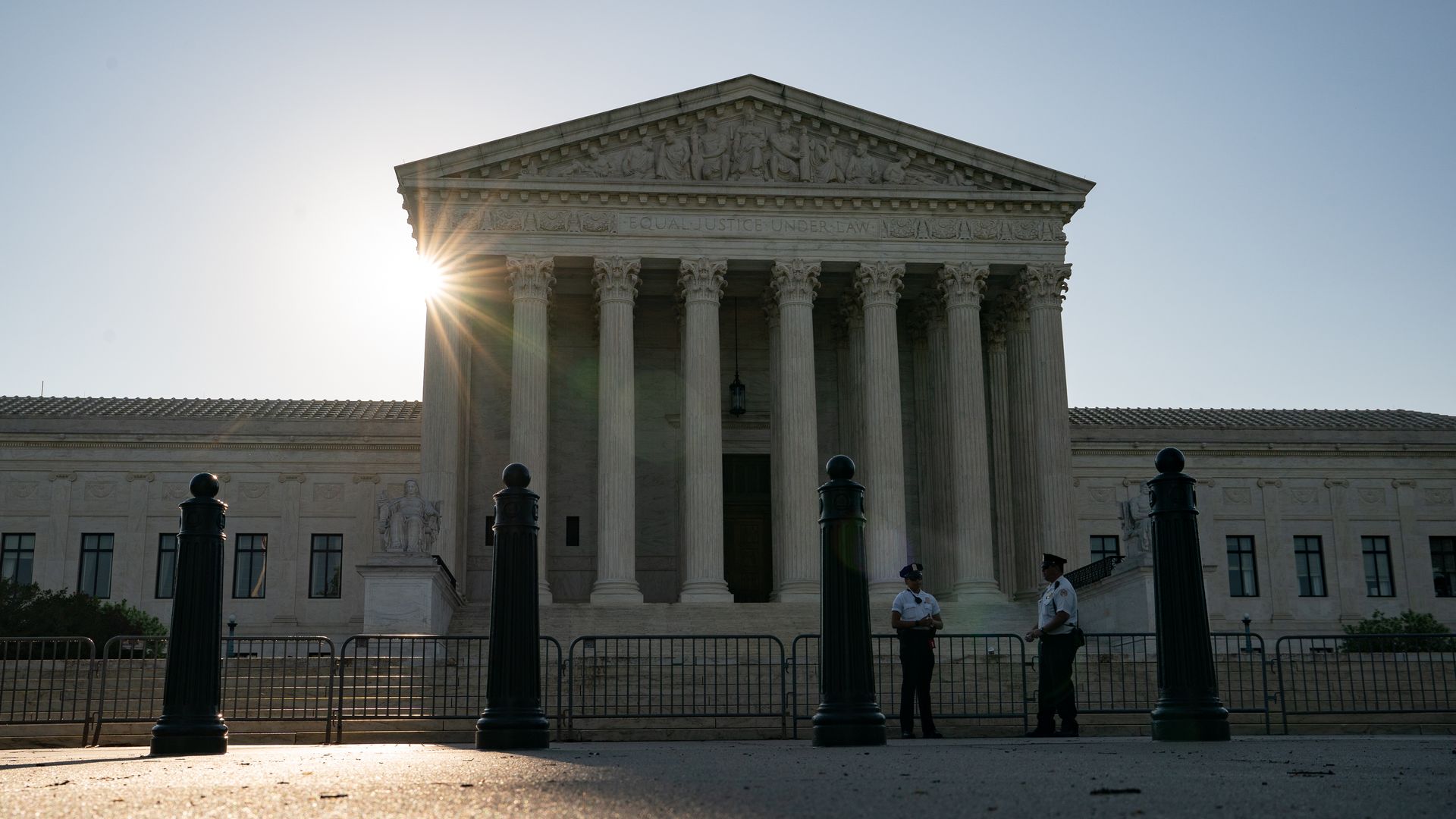May 17, 2021 - Politics & Policy
Supreme Court declines to broaden police power in warrantless searches of homes
Add Axios as your preferred source to
see more of our stories on Google.

Photo: Erin Scott/Bloomberg via Getty Images
Add Axios as your preferred source to
see more of our stories on Google.

Photo: Erin Scott/Bloomberg via Getty Images